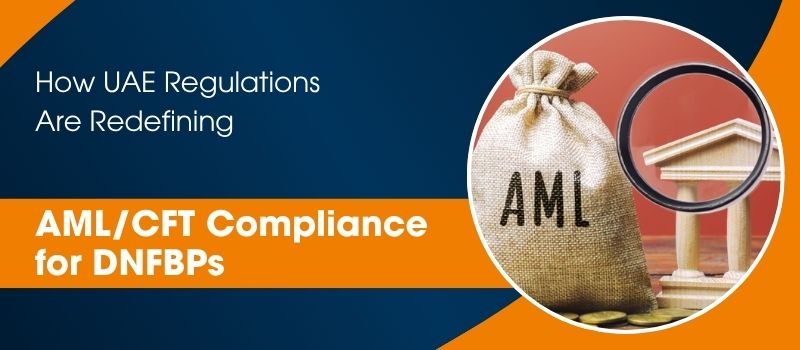In the UAE, financial transparency and accountability have become core priorities. AML/CFT Compliance in UAE (which stands for Anti-Money Laundering and Countering the Financing of Terrorism) forms the pillar of this effort.
The Anti money laundering Law UAE (issued under Federal Decree-Law No. 20 of 2018 and Cabinet Decision No. 10 of 2019) clearly sets out the duties of both financial institutions and Designated Non-Financial Businesses and Professions (DNFBPs). These laws apply to:
- Accounting and auditing firms
- Real estate brokers
- Dealers in precious metals
- Other consultancy providers
Companies must file Suspicious Transaction Reports through the goAML system, maintain updated AML policies, and train staff to identify unusual patterns. These are now a standard part of doing business in a regulated market.
Key Shifts in AML/CFT Compliance in UAE
Over the last few years, the UAE has raised its regulatory standards to match global benchmarks. One of the biggest changes in AML/CFT Compliance in UAE is the emphasis on continuous monitoring. Businesses are now required to conduct ongoing risk assessments rather than relying on one-time checks.
The AML/CFT regulations UAE also focus heavily on beneficial ownership and customer due diligence. This means that DNFBPs must verify the actual individuals behind a company or transaction (and not just the listed representatives). These checks help detect hidden ownership structures and prevent misuse of legitimate operations.
Building an Effective AML/CFT Compliance in UAE Framework
A strong compliance system depends on a clear internal structure. Every DNFBP must have a written AML/CFT policy and procedures manual UAE that outlines how the company identifies, monitors, and reports risks. This manual serves as a guide for staff to follow when dealing with high-value or unusual transactions.
Many firms use an AML Policy Template UAE as a starting point, then adapt it to their business model. The manual should include:
- Client onboarding procedures
- Risk classification methods
- Reporting workflows for suspicious activity
- Record-keeping and data protection rules
Along with this, businesses are expected to appoint an AML Compliance Officer UAE, often referred to as the Money Laundering Reporting Officer (MLRO). This person is responsible for coordinating all internal AML activities, communicating with authorities, and maintaining staff awareness.
Training and Certification in AML/CFT Compliance in UAE
Training has become a vital part of compliance culture. Employees who understand the Anti money Laundering UAE laws are less likely to make costly mistakes or overlook red flags.
The Ministry of Economy and various accredited institutions now provide specialized programs that lead to an Anti money laundering Certificate UAE. These certifications demonstrate that your company takes compliance seriously and invests in continuous education.
For DNFBPs, training should not be a one-time session. It must be ongoing and adapted to new threats and regulatory updates. Topics often include recognizing suspicious behavior, documenting due diligence, and using technology tools to track transactions.
How Elevate Supports AML/CFT Compliance in UAE
For many businesses, the biggest challenge is not understanding the law—it’s applying it correctly. Elevate Accounting & Auditing helps DNFBPs build practical frameworks that fit real-world operations while meeting regulatory expectations.
Our team assists with:
- Developing and implementing AML policies and procedures manuals
- Conducting AML risk assessments
- Appointing and training compliance officers
- Managing goAML registration and reporting
By combining professional expertise with local regulatory insight, Elevate helps businesses stay compliant and audit-ready at all times.
Conclusion: The Future of AML/CFT Compliance in UAE
The UAE’s continued push for stronger regulation is reshaping how businesses operate. AML/CFT Compliance in UAE is now an ongoing commitment to global trust.
For DNFBPs, this shift represents both a challenge and an opportunity. Those who adopt clear policies, maintain active oversight, and invest in proper training will not only meet the AML/CFT regulations UAE but also strengthen their reputation in a market that values credibility.
Elevate Accounting & Auditing stands ready to guide you through every step – building compliance systems that protect your business today and prepare it for tomorrow.

